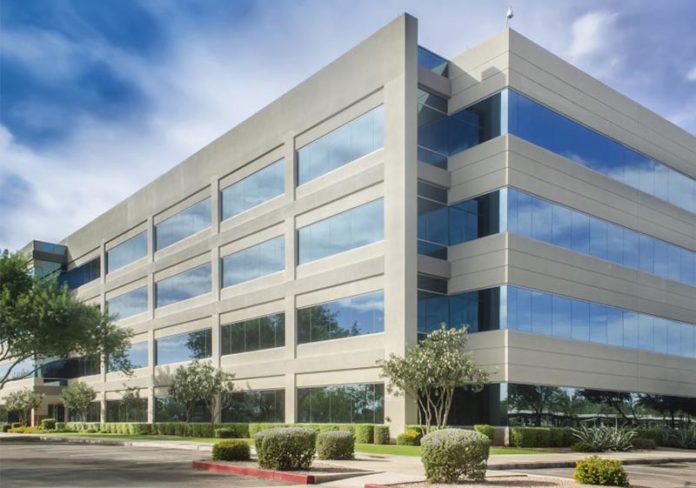Many traders now prefer to rent rather than become owners themselves, which opens up a market for landlords of commercial properties . Covering this terrain can of course be quite complex and set many pitfalls, especially when it comes to correctly taxing income . Therefore, we would like to turn to the legal basics and some other tips for the successful rental of commercial real estate .
Pay taxes not overlooked
When renting and leasing commercial real estate (or even more often when renting private residential space) it happens that the taxation of rental income is forgotten or not carried out correctly. Conversely, it happens that too much tax is paid, because many do not know the exceptions, tax deductions and tax niches.
Business license for renting and leasing
For many landlords, the question arises whether they need a trade license for the activity of renting or have to register a business.
If there is a large property portfolio, this is a good idea, but should be discussed with the tax advisor to be on the safe side. If a business is registered, there are always different tax requirements .
As a commercial landlord, from certain turnover limits or depending on the legal form chosen, double-entry bookkeeping must be carried out in order to be able to accurately balance rental income and advertising costs – i.e. costs to find a tenant, interest, maintenance, wear and tear, etc.
Income tax is therefore determined more comprehensively and paid within the company. There are also differences for sales tax – but more on that below.
Commercial property rent as a private person
If it is a small inventory of apartments and facilities that can be rented, you can also rent out as a private person . The rental income minus the advertising costs are then simply stated in the income tax return and transferred to the tax office.
Depreciation and Co .: Tax deduction for wear
In principle, the rental income for a specific rental property is taxed. As already mentioned, the advertising costs are deducted from this income . These include the costs incurred in advance to find a tenant, maintenance costs, interest, deduction for wear, etc. From the Federal Ministry of Finance , this means:
“In general, this means that the taxpayer can deduct the purchase or production costs of the building – spread over the useful life – from the tax.”
Services that arise in the run-up to the rental are referred to as pre-advertising costs. Conversely, there are post-acquisition costs that can still be deducted if the tenancy has already ended and therefore no rental income can be achieved.
Furthermore, the wear and tear of the rental property can be deducted from the tax. The depreciation for wear and tear (AfA) is calculated over a total useful life of 66.6 years and is therefore 1.5%. Depending on the building, construction type and year, however, various provisions apply , which can be found in one of the brochures of WKO. Visit deltapropertiesllc for more information.
Sales tax and spurious tax exemption
In the sales taxation of commercial properties , the so-called true false tax exemption . This means that you do not have to pay sales tax to the tax office, in return, for example for maintenance costs, etc., you cannot get back any input tax. This only applies to lessors of companies entitled to deduct input tax.
In these cases, as a commercial landlord, you have the right to waive the exemption , i.e. to pay the usual 20% tax rate, and you are also entitled to deduct input tax . However, this only applies if at least 95% of the rented property is rented by taxable companies.
If part of the usable space is used for private residential purposes, this part must be taxed at 10%. The normal tax rate of 20% also applies to the rental and leasing of machines and other operating equipment .
“Special circumstances”
“Special circumstances” include, for example, the private or commercial use of a property, co-own ership of a property and the rental to relatives. In these cases, the following rules apply:
The landlord’s private and business use must be clearly separated for tax purposes. The usable space, which is in private use, is excluded from tax considerations, in contrast to the areas used for operational purposes. Accordingly, expenses incurred there do not fall under operating expenses and can therefore be deducted as operating expenses.
In the case of a house community with several co-owners , the AfA amounts can vary.
If you rent to family members at a disproportionately low rent , this is not recognized for tax purposes.
“Protection against competition”
For commercial tenants, there is the option of including a competition clause in the rental agreement .
This means that the landlord may not rent any of his other properties to the tenant’s competitors. The clause itself can easily be included in the contract.
As a landlord, however, you should be careful not to let the clause be too broad , otherwise you will exclude too many potential tenants.
Smart funding in advance
In order for the rental to be really profitable, special attention should be paid to the financing. If there is not enough money available to buy the property (s), there is a risk that the rental income will later be eaten up by the interest on the loan taken out. An equity stock of around 50% of the purchase price is recommended.
Avoid vacancy
In order to gain a financial advantage from the rental, it is of course conceivably unfavorable if the rental property is vacant . No tenants – no rent – no rental income. This is to be avoided in any case, which can already happen when choosing the property . Think carefully about which types and locations are particularly attractive for entrepreneurs to rent.









